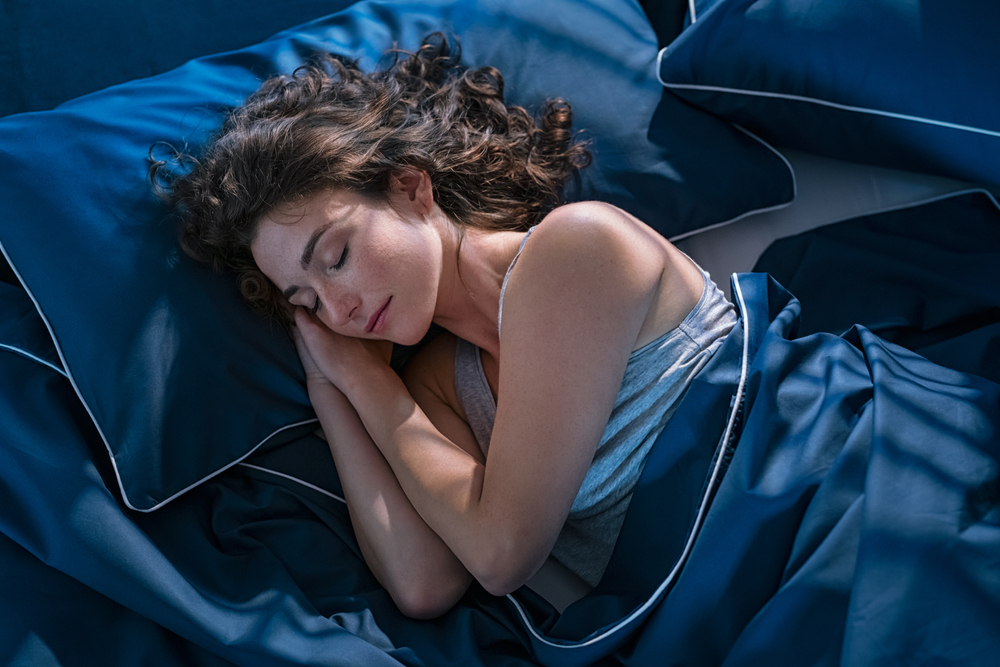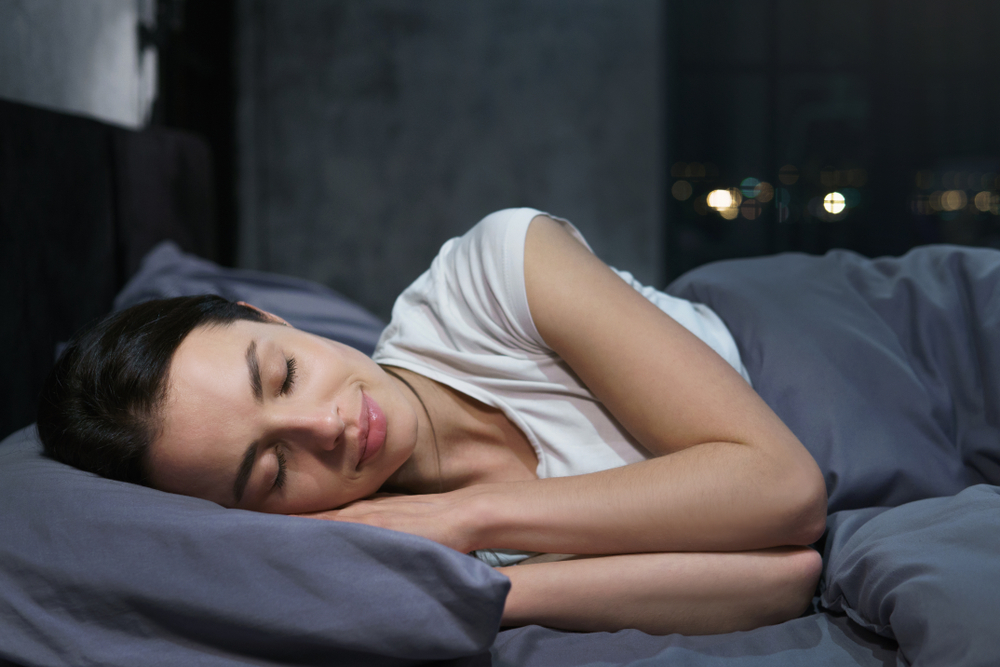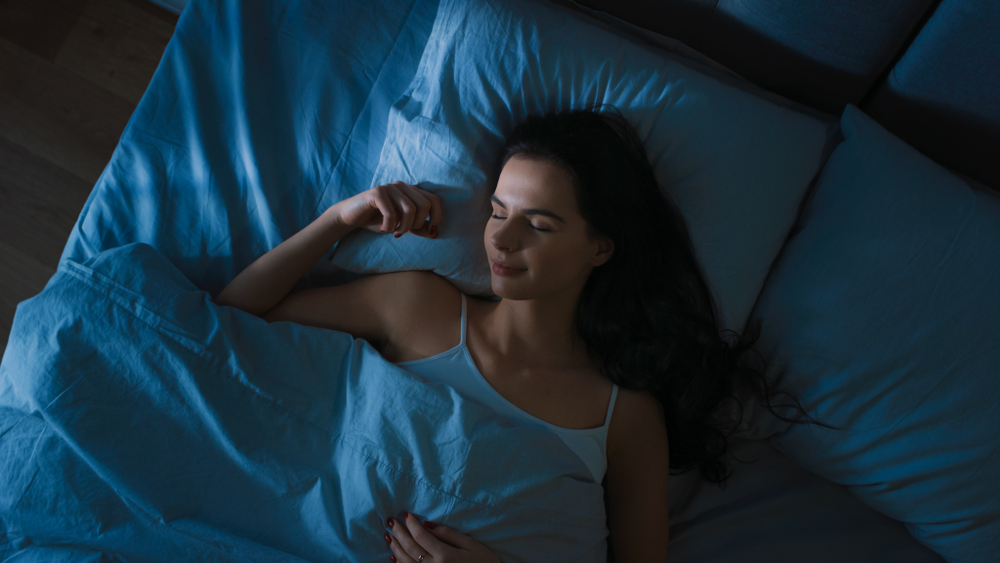Getting good sleep can feel like a puzzle sometimes, right? We all want to wake up feeling refreshed and ready for the day, but it's not always easy. Luckily, there are simple, natural sleep tips that can make a big difference. This article will walk you through some easy ways to improve your sleep, focusing on creating a good environment, taking care of your body, and finding ways to relax before bed. Let's get you sleeping better, naturally.
Key Takeaways
- Make your bedroom a calm space for sleep by controlling light and temperature.
- Stick to a regular sleep and wake time, even on weekends.
- What you eat and drink can affect your sleep, so pay attention to your diet.
- Gentle exercise during the day can help you sleep better at night.
- Try calming activities before bed, like reading or a warm bath, to signal sleep time.
Embrace Your Inner Sleep Architect
Think of yourself as the architect of your own sleep. It sounds a bit grand, but honestly, you have a lot more control over your nightly rest than you might realize. It’s not about magic pills or complicated routines; it’s about making smart, simple choices that add up.
Crafting Your Ideal Sleep Sanctuary
Your bedroom should be a haven, a place where your brain automatically starts to wind down. Forget about work emails or that pile of laundry. Let's make your room a true sleep zone.
- Declutter: A messy room can lead to a messy mind. Take a few minutes to tidy up.
- Comfort is Key: Make sure your mattress and pillows are comfy. If they're old and lumpy, it might be time for an upgrade.
- Sensory Check: What do you see, hear, and smell? Aim for dim lighting, quiet (or white noise if you prefer), and maybe a fresh scent.
Creating a peaceful environment is the first step to signaling to your body that it's time to rest. It's about setting the stage for good sleep.
The Magic of a Consistent Sleep Schedule
This is probably the most talked-about tip, and for good reason. Your body loves routine. Going to bed and waking up around the same time every single day, even on weekends, helps regulate your body's internal clock, also known as your circadian rhythm. It might feel like a drag to give up weekend lie-ins, but the payoff in better sleep quality is huge.
- Set Alarms: Not just for waking up, but maybe a gentle reminder an hour before bed to start winding down.
- Be Patient: It takes time for your body to adjust to a new schedule, so don't get discouraged if it's not perfect right away.
- Listen to Your Body: While consistency is great, if you're genuinely exhausted, it's okay to adjust slightly. The goal is balance, not rigid adherence.
Sticking to a regular sleep schedule can really make a difference in how you feel day-to-day. It’s a simple habit that can lead to big improvements in your overall well-being, helping you feel more rested and ready to tackle your day. You can find some helpful tips on establishing good sleep habits.
Nourish Your Body for Sweet Dreams
What you eat and drink can really make a difference in how well you sleep. It’s not just about avoiding that late-night coffee; it’s about what you’re putting into your body throughout the day. Think of your body like a finely tuned machine – give it good fuel, and it runs smoothly, even when it’s time to rest.
Dietary Delights for Better Sleep
Making smart food choices can seriously help you catch more Zzzs. Certain foods contain nutrients that naturally promote relaxation and sleep. For instance, foods with tryptophan, like turkey or dairy products, can help your body make melatonin, the sleep hormone. You might also want to load up on foods rich in magnesium, which can help calm your nervous system. Think leafy greens, nuts, and seeds. Eating a balanced diet is a simple yet powerful way to support your sleep.
Here are a few ideas to get you started:
- Tart Cherry Juice: This is a popular choice because cherries naturally contain melatonin. A small glass before bed might do the trick.
- Almonds and Walnuts: Both are good sources of magnesium and melatonin. A small handful can be a great evening snack.
- Fatty Fish: Salmon, mackerel, and tuna are packed with vitamin D and omega-3 fatty acids, which can help regulate serotonin. Serotonin is a precursor to melatonin.
- Chamomile Tea: This classic bedtime drink is known for its calming properties. It’s a gentle way to wind down.
It’s also a good idea to try and eat your meals around the same time each day. This helps keep your internal clock, or circadian rhythm, in sync, which is super important for good sleep. You can find more tips on how diet affects sleep on this page about eating for better sleep.
Remember, it’s not about perfection, but about making small, consistent changes that add up. Don't stress too much about one off meal; focus on the overall pattern.
Hydration Habits for Restful Nights
Staying hydrated is important for overall health, but how you hydrate can impact your sleep. While you don’t want to be thirsty, chugging a ton of water right before bed can lead to nighttime bathroom trips, which totally disrupt your sleep cycle. Try to spread your water intake throughout the day. If you’re feeling thirsty in the evening, stick to smaller amounts or opt for something like herbal tea. This way, you’re keeping your body happy and hydrated without sacrificing uninterrupted sleep. It’s all about finding that sweet spot!
Move Your Way to Deeper Slumber
Feeling a bit sluggish? Turns out, getting your body moving can be a total game-changer for your sleep. It’s not about training for a marathon, though. Even a little bit of activity can make a big difference in how quickly you drift off and how soundly you sleep. Think of it as preparing your body for a good night's rest.
The Power of Daily Movement
Getting regular exercise is one of the best things you can do for your sleep. It helps tire you out in a good way, making it easier to fall asleep when your head hits the pillow. Plus, it can help you sleep more deeply. You don't need to do anything too intense. A brisk walk, some gardening, or even dancing around your living room counts!
Here’s why moving more helps:
- It helps regulate your body's natural sleep-wake cycle.
- It can reduce stress and anxiety, which often keep us awake.
- It can improve your mood, making you feel more relaxed before bed.
Seriously, finding ways to be active during the day can really pay off when it comes to catching those Zzzs. It’s amazing how much better you can feel just by adding a bit more movement into your routine. You might find that you fall asleep faster and wake up feeling more refreshed. It’s a simple, natural way to improve your overall well-being, and it’s something we can all work on. For many people, consistent physical activity can help them fall asleep up to 13 minutes faster, with benefits showing up in just a few weeks. Check out some ideas for getting started with regular exercise.
Timing Your Workouts for Optimal Rest
Now, when you exercise matters too. While moving is good, doing a super intense workout right before bed might actually make it harder to fall asleep for some people. Your body is still buzzing! It’s generally better to finish vigorous exercise at least a few hours before you plan to hit the hay. Morning or afternoon workouts are usually ideal. If you really want to exercise in the evening, try something more gentle, like yoga or a light walk. This way, you get the benefits of movement without the potential for it to keep you wired.
Unwind and Let Go of the Day
Okay, so we've talked about setting up your sleep space and what to eat, but what about actually winding down? It’s like, the day’s been a whirlwind, right? Emails, errands, maybe a little bit of chaos. Before you just crash into bed, giving yourself a little buffer zone is super helpful. Think of it as a gentle transition from ‘busy bee' to ‘sleepy bear'. This transition period is key to signaling to your brain that it's time to power down.
Creating a Soothing Bedtime Ritual
This isn't about complicated steps or anything. It's just about finding a few simple things that help you relax. Maybe it's reading a book (a real one, not on a screen!), listening to some calm music, or even just having a warm, non-caffeinated drink. The goal is to create a consistent routine that tells your body, “Hey, we're getting ready for sleep now.” Try to avoid anything too stimulating, like intense news or stressful conversations, in the hour or so before bed. A warm bath or shower can also be really nice. It's all about finding what makes you feel peaceful.
Mindfulness and Meditation for Calm
Sometimes, our brains just won't shut off, you know? Thoughts are racing, replaying the day, or worrying about tomorrow. That's where a little mindfulness can come in handy. You don't need to be a guru or anything. Just focusing on your breath for a few minutes can make a big difference. Try to notice the sensation of the air coming in and going out. If your mind wanders, that's totally normal! Just gently bring your attention back to your breath. It’s a practice, and it gets easier. Even just a few minutes of deep, slow breathing can help activate your body's natural relaxation response, making it easier to drift off. You can find tons of guided meditations online or through apps if you want a little extra help getting started. It’s a great way to quiet the mental chatter and prepare for a good night's sleep. Remember, it's okay if it feels a bit awkward at first; just keep at it and see how it feels over time. You might be surprised at how much calmer you feel, and that calm is exactly what you want before you try to sleep. Check out some simple breathing exercises to help you relax before bed [fca5].
The idea is to create a consistent, calming sequence of activities that signals to your body and mind that it's time to wind down. This isn't about forcing sleep, but rather creating the conditions for it to happen naturally.
Harnessing Nature's Sleep Aids
Sometimes, the best way to get a good night's sleep is to look at what nature has to offer. We're not talking about anything complicated here, just simple, natural helpers that can make a real difference. It's amazing how much better you can feel when you're well-rested.
Herbal Helpers for Tranquility
Herbs have been used for ages to help people relax and sleep better. Think of it like a gentle nudge towards dreamland. Some of the most popular ones include:
- Valerian Root: This is a classic. It's been used for a long time to help with sleep and anxiety. It might work by affecting a chemical in the brain called GABA, which helps calm your nervous system. You can often find it in teas or capsules.
- Chamomile: Most people know chamomile tea as a calming drink. It has an antioxidant called apigenin that binds to certain receptors in your brain, which can decrease anxiety and initiate sleep. It's super gentle and a nice way to wind down.
- Lavender: While often used in aromatherapy, lavender can also be taken internally, usually in capsule form. It's known for its calming properties and can help ease you into sleep.
It’s worth exploring these options if you’re looking for a more natural approach. You can find a variety of natural sleep aids like L-Theanine and Valerian to combat insomnia at many health stores.
Aromatherapy for a Peaceful Atmosphere
Beyond just drinking teas, the scents around you can also play a big role in creating a sleep-friendly environment. Aromatherapy uses essential oils to promote relaxation and sleep.
- Lavender Oil: This is probably the most well-known for sleep. A few drops on your pillow or in a diffuser can really help. It smells great and has a genuinely calming effect.
- Bergamot Oil: This citrusy scent is also great for reducing stress and anxiety, which are big sleep blockers for many people. It’s a bit brighter than lavender but still very soothing.
- Sandalwood Oil: This has a warm, woody scent that’s deeply grounding. It can help quiet a busy mind, making it easier to drift off.
Just a little bit of these oils can go a long way. Make sure you’re using pure essential oils, though, and not synthetic fragrances, as those can sometimes have the opposite effect.
Creating a peaceful atmosphere before bed isn't just about making things smell nice; it's about signaling to your body and mind that it's time to switch off from the day's demands. Think of it as a gentle transition, a way to ease yourself out of alertness and into a state of rest. It’s a small change that can lead to big improvements in how you feel when you wake up.
Mastering Your Sleep Environment
Let's talk about your bedroom. It's more than just a place to crash; it's your personal sleep haven. Making sure it's just right can make a huge difference in how well you sleep. Think of yourself as the architect of your own rest!
Temperature and Light: Your Sleep Allies
Getting the temperature and light in your room dialed in is super important. Most people sleep best when the room is a bit cool. We're talking around 65 to 68 degrees Fahrenheit. It might feel a little chilly at first, but your body actually likes that cooler temp for sleep. It helps signal to your brain that it's time to wind down. As for light, darkness is your best friend. Even small amounts of light can mess with your body's natural sleep signals. So, blackout curtains are a great idea if you have streetlights or early morning sun that bothers you. Making your room a dark, quiet, and cool sanctuary is a game-changer for better sleep.
Minimizing Disruptions for Uninterrupted Sleep
What else can throw off your sleep? Little things, really. Your phone buzzing, a pet wandering in, or even a noisy neighbor can be enough to wake you up. It's all about creating a peaceful bubble.
Here are a few ideas:
- Silence the noise: Consider earplugs or a white noise machine if outside sounds are an issue. Sometimes a fan can do the trick too.
- Tech-free zone: Try to keep electronics out of the bedroom, or at least turn off notifications. That blue light from screens is a known sleep disruptor.
- Comfort is key: Make sure your mattress and pillows are comfortable. If they're old or causing you pain, it's probably time for an upgrade. A comfortable bed really helps you stay asleep.
Sometimes, the simplest adjustments to your surroundings can have the biggest impact on your sleep quality. It's about creating an environment where your body naturally wants to rest and recharge.
Think about your bedroom as a tool to help you sleep better. Small changes can lead to big improvements, and you deserve those restful nights. Check out some tips on creating a good sleep hygiene routine to get started.
Sweet Dreams Ahead!
So there you have it – some simple ways to get better sleep. It’s not about doing everything perfectly, just trying a few things that feel right for you. Maybe it's a warm cup of tea before bed, or making sure your room is nice and dark. Small changes can really add up. Don't get discouraged if you don't see results right away. Just keep at it, and you'll likely find yourself feeling more rested and ready to take on your day. Here's to more peaceful nights and brighter mornings!
Frequently Asked Questions
How can I make my bedroom better for sleep?
Think of your bedroom as your sleep cave! Make it dark, quiet, and cool. Get comfy sheets and pillows. Also, try to keep electronics out of there so you're not tempted to scroll.
Why is having a regular sleep schedule important?
Going to bed and waking up around the same time every day, even on weekends, really helps your body know when it's time to sleep. It's like training your internal clock!
What foods or drinks should I avoid before bed?
Eating heavy meals or drinking caffeine and alcohol close to bedtime can mess with your sleep. Try to have lighter snacks if you're hungry and avoid those drinks a few hours before you hit the hay.
Does exercise help with sleep?
Gentle exercise during the day can make you sleepier at night. Just try not to do super intense workouts right before bed, as that might energize you too much.
What's a good bedtime routine?
A relaxing routine before bed signals to your brain that it's time to wind down. This could be reading a book, taking a warm bath, or listening to calm music. Avoid stressful activities or screens.
Are there any natural remedies that help with sleep?
Certain herbs like chamomile or valerian root are known for their calming effects and can help you relax. Essential oils like lavender used in a diffuser can also create a peaceful mood.



